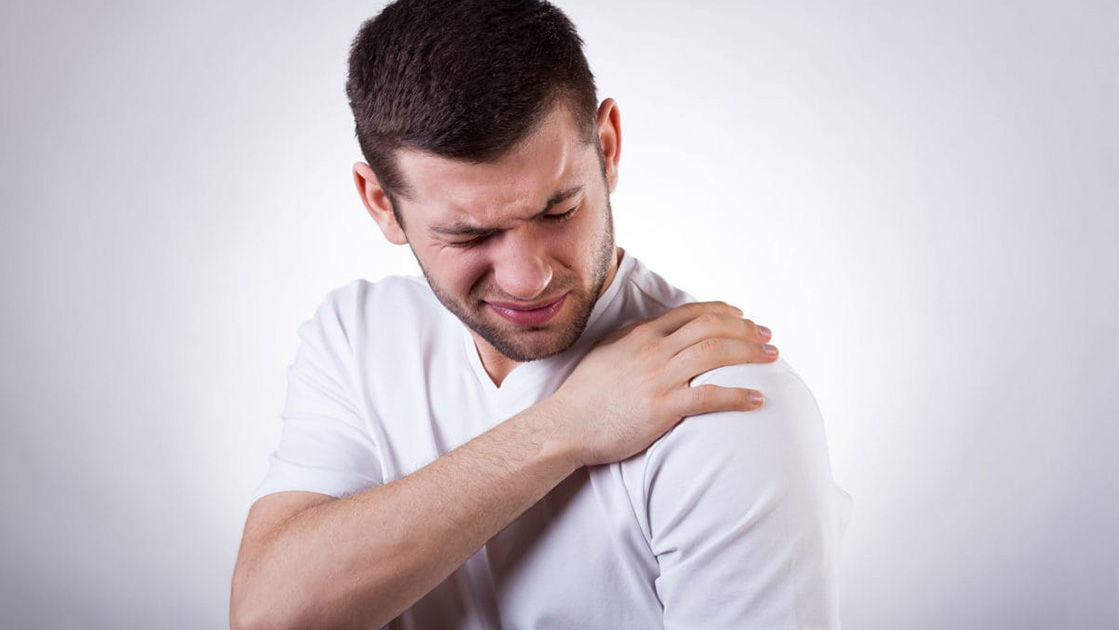Symptoms of Frozen Shoulder
Pain and Stiffness with gradual limitation in motion and also worsen with time. The pain is usually worse at night and could even wake a person from sleep. It becomes worse when trying to lie on one side of the affected arm. The patient will find difficulty in doing normal day-to-day tasks. Frozen shoulder usually occurs on one side of the body and can also spread to the other side if untreated. Usually, the pain comes down in some time but the stiffness makes the pain more severe. This makes it difficult for the affected person to even lift their arm.
Causes Of Frozen Shoulder
Frozen shoulder disease can occur due to lung or heart problems or diabetes. It is common in people who are aged above 40 years and also more common in females. Other reasons include hereditary reasons or prior shoulder joint injury history. Excessive exercise, excess dry and salt food consumption, night outs, fasting, digestion problems, and stress problems can also be the reason. Another reason could be synovitis which is the tear of the lesion in the muscle around the joints. Trauma history could also be a reason for a Frozen Shoulder. And, keeping the arms immobilized in a certain position for longer periods can also lead to frozen arms. Cardiac procedures, diabetes, or heart and lung diseases can also lead to a frozen shoulder. Other causes include Inflammation, thickening, scarring, and shrinkage of the muscle capsules surrounding the shoulder joint. Bursitis, Tendinitis, and rotator cuff injury can also lead to severe pain and a Frozen shoulder.
Ayurvedic Remedies for Frozen Shoulder
People with frozen shoulder disease generally apply analgesics steroids or anti-inflammatory medications. This relieves the pain for shorter amounts of time but doesn’t solve the root cause of the disease. It is not a definitive cure for frozen shoulder disease. Thus, this results in recurring pain in different parts of the arm. Thus, the affected individual shifts to using higher dosage medicines or injections repetitively. Hence rather than eliminating the main cause of the pain, this outlayer cure increases the severity of the disease.
Ayurvedic treatment’s main focus is to eliminate the underlying root cause of the pain. Also, permanent relief from these symptoms is the main goal. Ayurveda treatment includes the usage of herbal medications like Aristas, and Kashayas and, the use of oils both externally and internally. This is to purge the offending toxins permanently from the body. Panchakarma treatment uses oil massage, and steam bath along with Narangakizhi and Nasyam. This unique treatment has originated from the Indian state of Kerala. The general recommendation is to take at least 10 days of this massage therapy followed by a minimum of 7-day rest period. Panchkarma and Kerala therapy are effective if the cause of the frozen shoulder is because of the secondary group. This Ayurvedic treatment helps in balancing the disturbed vata levels in the body. Massage therapy includes using medicated oil to squeeze on the body with a cotton cloth. Elakizhi is another popular herbal massage that helps in strengthening the muscles. This also facilitates mobility in the shoulder and all the parts of the body. The duration of the therapy usually depends on the severity of the disease and the symptoms. It can extend between a week to 3 weeks and might be months also in some cases.
Purification Therapy:
Some toxins present in the body can also lead to pain and immobility in the shoulder and other body parts. Thus, the main concentration is to eliminate these toxins. And the treatment is done to pacify the vata dosha. Nasal insufflation of herbal oils is also carried out sometimes to cure frozen shoulder. These Ayurvedic therapies might vary from person to person based on their constitution and other disease-causing factors. These massages and therapies give a lot of relaxation to the shoulder muscles and surrounding body parts.
Proper Nutrition:
Some toxins present in the body can also lead to pain and immobility in the shoulder and other body parts. Thus, the main concentration is to eliminate these toxins. And the treatment is done to pacify the vata dosha. Nasal insufflation of herbal oils is also carried out sometimes to cure frozen shoulder. These Ayurvedic therapies might vary from person to person based on their constitution and other disease-causing factors. These massages and therapies give a lot of relaxation to the shoulder muscles and surrounding body parts.


